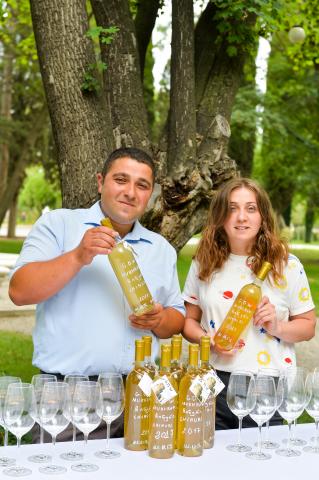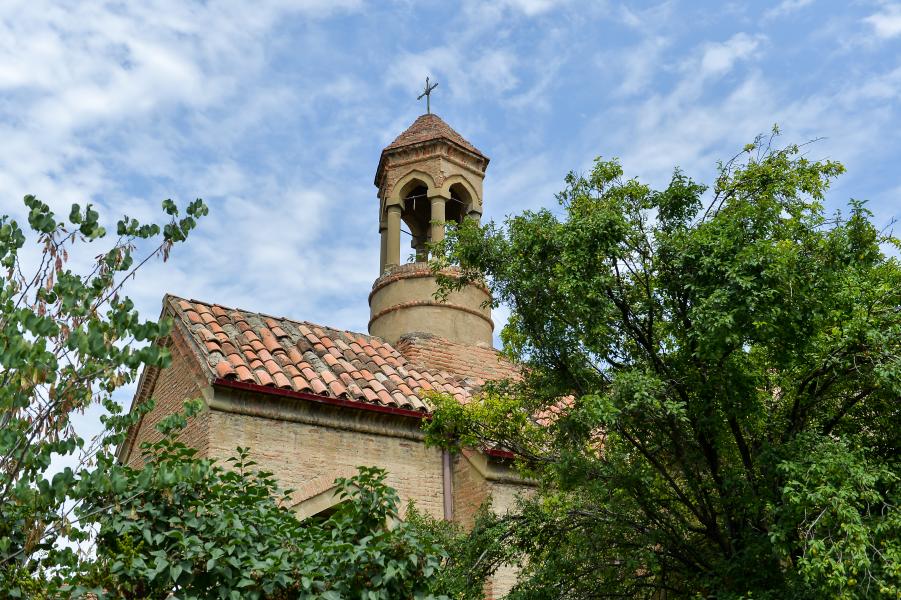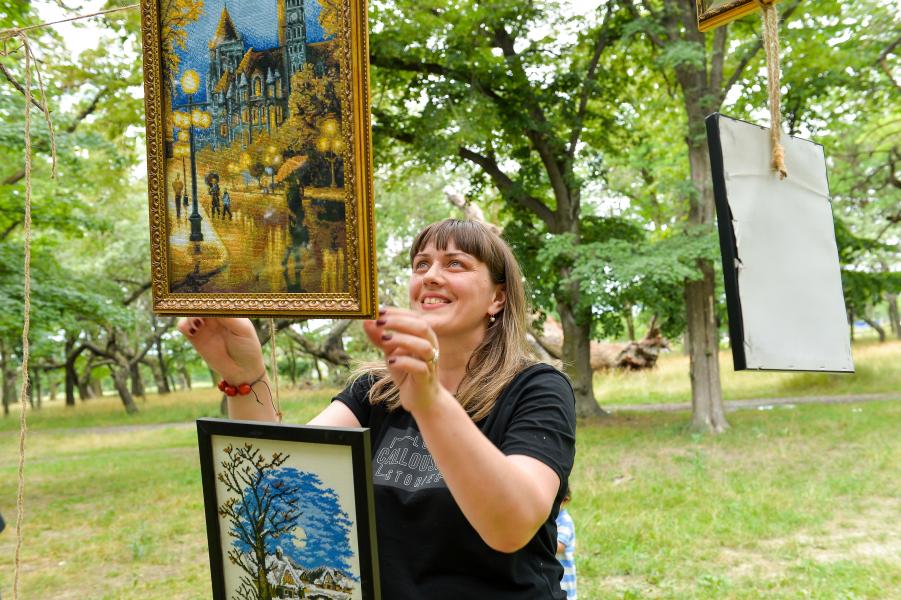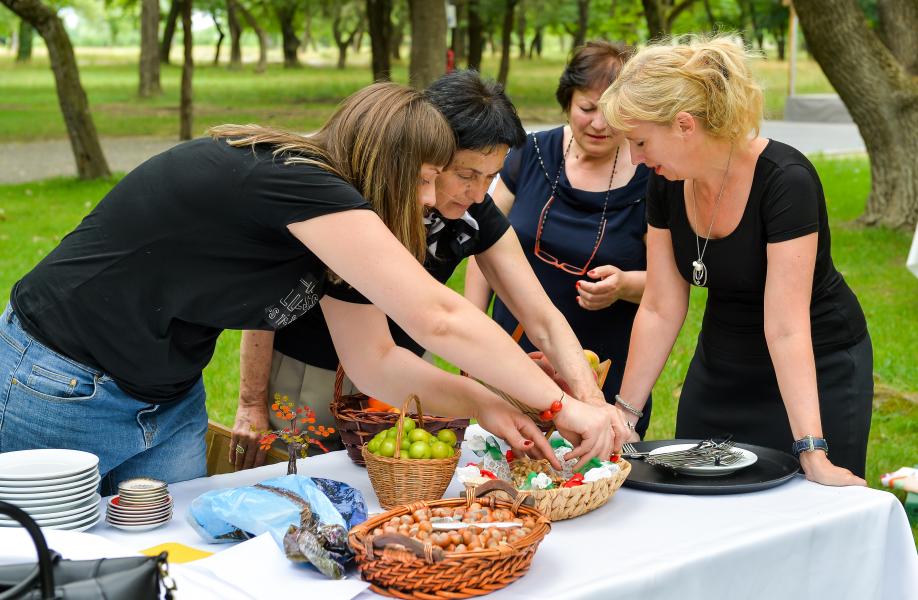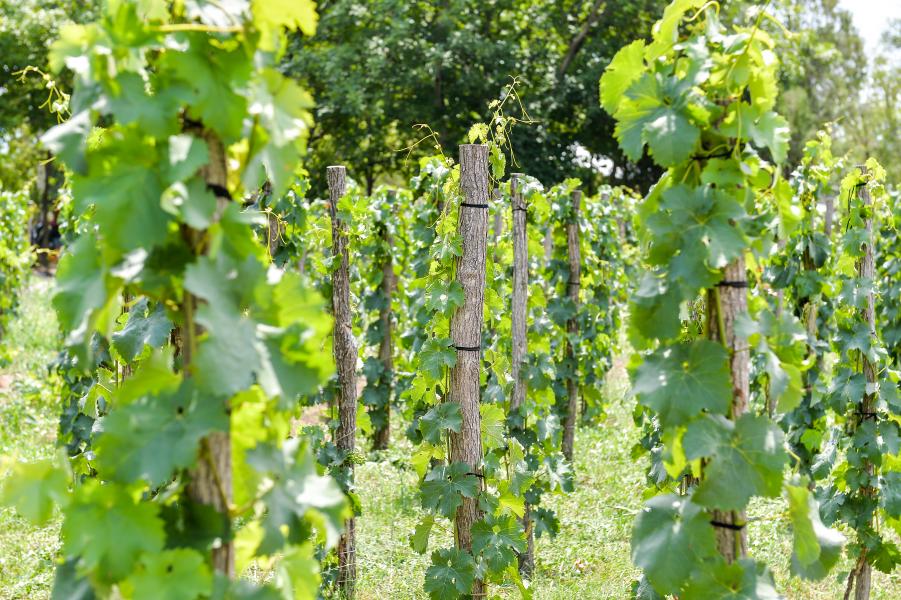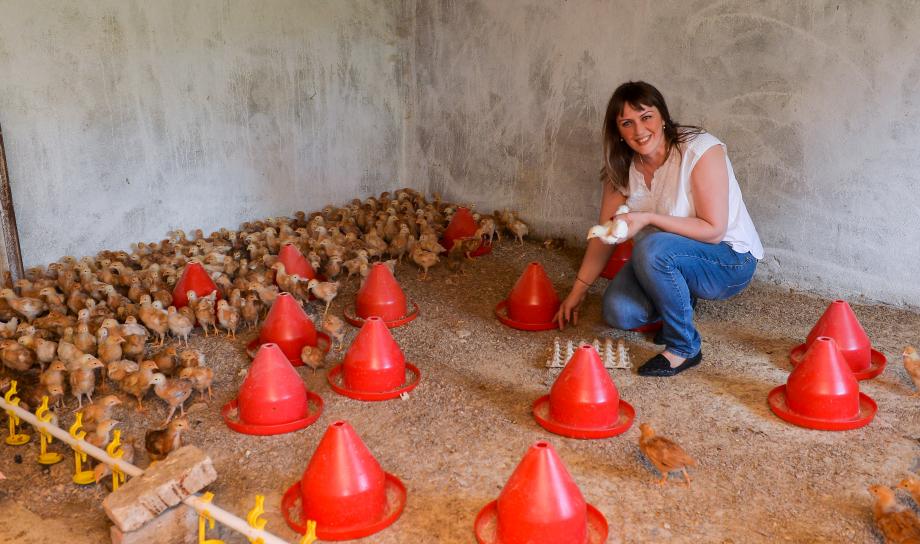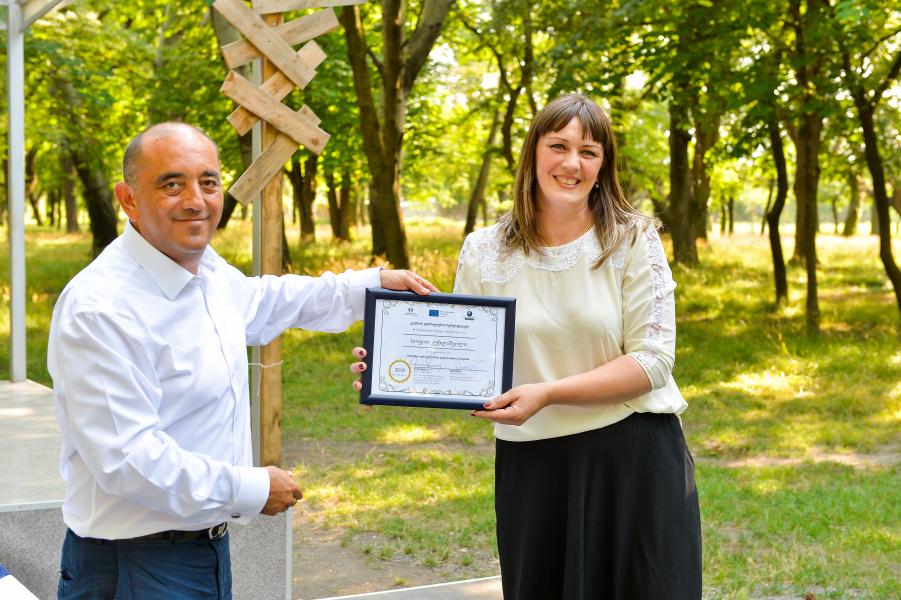Innovative advisory project puts wine village of Mukhrani on the tourism map
It is said that for agritourism to thrive, visitors need three things – something to see, something to do and something to buy. The charming village of Mukhrani, only a 30 kilometre drive from Georgia’s capital Tbilisi, ticks all the boxes. Shrouded in greenery, it combines the history of the Georgian royal family with well-preserved remains of an ancient Roman city.
Wine production has a long and proud tradition in this area, closely linked to the name of Ivane Mukhran-Batoni, a statesman and entrepreneur of the late 19th century, who started producing wine by employing modern methods (for the time), exported Georgian wine to Europe and even won several prestigious awards. The wine-making tradition, and Mukhran-Batoni’s influence, is sustained even today. Château Mukhrani, a hip destination for wine lovers, offers an insight into modern wine production and other entertainment on the grounds of the former royal family estate.
“Last year, Château Mukhrani hosted almost 40,000 visitors from all over the world. Our rich history and the charm of Mukhrani appeals to the guests,” says Victoria Shtorm from Château Mukhrani.
In 2017 alone, international arrivals in Georgia reached 7.9 million – roughly double the country’s population. The tourism sector now accounts for 6.9 per cent of GDP, opening up opportunities for entrepreneurial locals. The free trade area between Georgia and the European Union (EU) further encourages local businesses to produce to European standards when exporting and producing for local consumption.
Unlocking potential
The EBRD works together with the EU under its EU4Business initiative to help Georgian businesses align themselves with European regulations as well as quality and new food safety standards. In Mukhrani, the programme is empowering the local community with skills and knowledge to make the most of the agritourism potential of their village and its surroundings.
"Georgia has much to offer in terms of agritourism and the great tradition of winemaking. So it is a good decision for us to help foster this potential with innovative approaches to training and business. The European Union is committed to sustainable development and job creation in Georgia," says Janos Herman, Ambassador of the European Union to Georgia.
“This is our first project in Georgia that links agriculture and tourism and we look forward to seeing the results and replicating them in other countries with agritourism potential,” says Victoria Zinchuk, Head of EBRD Agribusiness Advisory.
Rural escape
Sophio Kubiashvili runs a small chicken meat production business in Mukhrani and is enthusiastic about her village’s future.
“Mukhrani has great untapped potential,” says Sophio who is planning to remodel her house to host up to six guests at a time. “Nobody here can provide a full range of services to tourists. That’s why it’s good that we’re learning to team up and help visitors discover and enjoy this beautiful rural area.”
The training courses Sophio participated in are based on a needs assessment and conducted by Tourism Development International (TDI). They include agritourism-specific training on business development and food safety, technical visits to cultural heritage sites and guest lectures on destination management and funding.
“Supporting agribusiness and empowering rural communities is an integral part of the EBRD’s strategy in Georgia. With this project, we’re helping locals to become more self-sufficient, entrepreneurial and ready to fully enjoy opportunities this beautiful area offers,” says Bruno Balvanera, EBRD Director for the Caucasus.
Unlike many other villages in Georgia, Mukhrani benefits from a tourism development plan, developed with financial support of the Foundation for the Economic Development of Mukhrani. According to Juan Bagrationi, executive director:
“Positive long-term impact can be achieved through a targeted strategy to enhance the village’s appeal, based on its heritage assets, and increase jobs in the tourism.”
A small village, but one rich in history and attractions, Mukhrani is now starting to explore the full potential of agritourism. The hope is that this approach to develop the village as a tourism destination will spread to other regions of Georgia and beyond.

